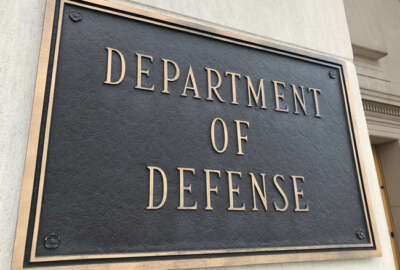Washington, DC: Just a town beneath the stars
How can the resources marshaled to get private citizens into space be marshalled for better human relations on earth?
Thoughts on two events:
Within a few minutes of the gunfire incident that emptied Nationals Park in Washington, D.C., on Saturday night, I started getting texts from people wondering if I was at that game. People know I’m a fan who gets to some 20-odd games a year — but not that particular night. But the incident reminded me of an old D.C. adage in reverse.
The adage states that national and international news is our local news. For instance, and to go back a ways, the attack on Pearl Harbor that long ago day in December caused a number of military officers in attendance to be summoned by loudspeaker from their seats in Griffith Stadium, interrupting their afternoon watching of what is now called the Washington Football Team playing the Philadelphia Eagles — an interruption that could last nearly five years.
My aunt was at the game that day and, at 96 years old, still remembers it. She’s told the story many times over the years.
You live in or near the capital of a mighty nation, distant events often have a local manifestation. But D.C. itself makes news from time to time because it is, after all, more than the seat of the federal government. It’s an actual city with actual residents, some born and raised there. The city’s residents deal with all of what’s wonderful and terrible about cities. Like so many large cities, your capital is experiencing a rise in assaults involving guns. Criminality happened to manifest itself within earshot of some 33,000 people all at once, who were inside the stadium.
While the hometown of Washington processed the latest episode of senseless street violence — elevated above incidents that seem to happen daily only because it interrupted a baseball game — the second billionaire in as many weeks jaunted into near space. And in this case, parachuted safely back to Earth, all in a privately financed space craft. The TV networks Tuesday morning were showing the preparations, countdown, and flight — as they would do for a NASA launch. Sixty years of launchings from the USA haven’t dulled the wonder of it.
Without in any way detracting from the extraordinary accomplishment of building and organizing the resources that result in companies like Virgin Galactic or Blue Origin, I would simply note that they build on nearly three generations of federal and private industry investment in the technologies — and risks — to make it possible. It is natural that this capability should diffuse now more into the private sector.
So from whence will come the organizing resources and principles such that the ordinary people down on earth can find a way to stop shooting at and otherwise trying to hurt one another? That all can gaze into space from a position of security down on the ground? All we’ve got now is talking at cross purposes.
I often come back to the closing words of the great 1945 Richard Wright memoir, “Black Boy.” At the end of the book, Wright is a young man about to depart from the post-Reconstruction South:
“With ever watchful eyes and bearing scars, visible and invisible, I headed North, full of a hazy notion that life could be lived with dignity, that the personalities of others should not be violated, that men should be able to confront other men without fear or shame, and that if men were lucky in their living on earth they might win some redeeming meaning for their having struggled and suffered here beneath the stars.”
Copyright © 2025 Federal News Network. All rights reserved. This website is not intended for users located within the European Economic Area.
Tom Temin is host of the Federal Drive and has been providing insight on federal technology and management issues for more than 30 years.
Follow @tteminWFED






